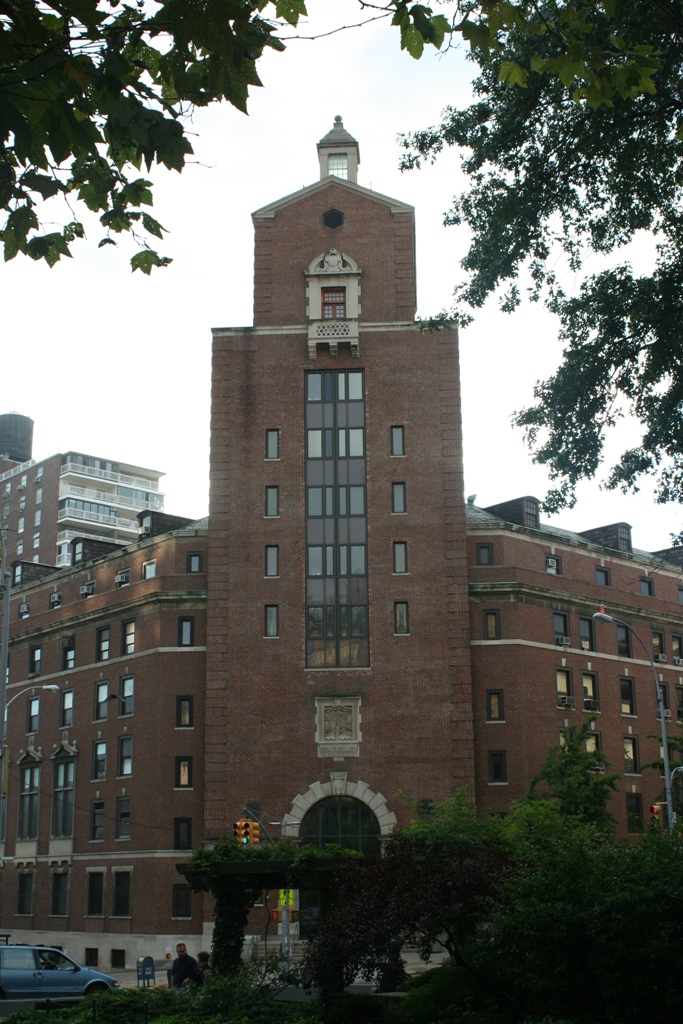Jewish Theological Seminary of Breslau
The Jewish Theological Seminary in Breslau, actually Jewish Theological Seminar Fraenckel'sche Foundation, was a 1854 to 1938 consisting of rabbis and teachers' seminary in Breslau. Built on the basis of a testamentary disposition of the Breslau Jewish businessman Jonah Fraenkel seminar was inaugurated on 10 August 1854, and became one of the most important Jewish educational institutions in Europe until the coming to power of the Nazis in Germany, which ended the seminar in 1938.
History
That in 1854, the Jewish Theological Seminary was founded on the basis of a testamentary disposition of the estate of Breslau bankers and Kommerzienrat Jonas Fraenkel and was independently managed by the Board of Trustees of Kommerzienrath Fraenckel'schen foundations. The foundation dates back to Abraham Geiger, who in 1836 proposed the establishment of a Jewish theological faculty at a university. The first director was not chosen violinist, but the conservative Dresdner Chief Rabbi Zacharias Frankel ( 1801-1875 ). Frankel was the founder of "positive - historical " school, which, as he explained in his major work Darkei HaMischnah (paths of the Mishna ), took the view that the Jewish law, Halacha, was never static, but always changing to be had developed about conditions. After the death Frankel reader Lazarus was Director, after his death in 1879, the Director granted powers are entrusted to the teaching staff. The main lecturer in Talmudic and rabbinic literature science seminar served as a rabbi, he alone was the exhibition of the Rabbinical diploma, the Hattarat Hora'ah to.
With the opening of the Jewish Theological Seminary Wrocław became one of the most important centers of Jewish scholarship in Europe. The seminar provided an unrestricted freedom of research, but based on the customs of traditional Judaism, with which compliance was required of teachers and students (literally, on the floor of the positive and historical Judaism continued assemble ).
The seminar was the first German rabbinical seminary. It originally consisted of three departments: 1 rabbis department with seven years of education for students with university entrance; Second course ( Präparandie ) for students with Sekundareife; 3 the teacher department. The latter two departments were disbanded in the 1880s, teacher training was resumed after the First World War, when the seminar received a boost. However, most important part of the seminar was the rabbinical seminary, which by the Nazis in 1933 remained the most important institution for the training of rabbis in Europe until the takeover.
It also served as a model for the establishment of Jewish institutions (Berlin 1870 by Abraham Geiger: Academy for the Science of Judaism ) and other rabbinical seminaries (Budapest 1877: Landesrabbinerschule; Vienna 1883: Israeli table College of Theology ). Also, the Jewish Theological Seminary of America in New York, an institution of Conservative Judaism, refers to the Breslau Seminary.
The seminar library contained over 30 000 volumes; Frankel's " monthly journal for the history and science of Judaism " appeared since 1851 and has been an important forum for the presentation of the results of scientific research and not least the self-assurance of the seminar ( it was published until 1939).
1931 allowed the Prussian government the seminar to guide the addition of " School of Jewish theology." During the pogroms of November 1938, the library and the seminar were devastated, after it was closed by the Nazis. Many students were taken to the concentration camp Buchenwald. Some activities were still carried on for a time in the underground. The last two students were ordained on 21 February 1939.
Known teachers and students
Seminar rabbis were David Joel (1880-1882), Israel Lewy (1883-1917), Saul Horovitz (1917-1921), Michael Guttmann ( 1922-1934 ).
Lecturers have included Jacob Bernays (1824-1881), Classical philologist, Markus Brann, Zacharias Frankel, Jacob Freudenthal, Heinrich Graetz (1817-1891), historian, Jacob Guttmann, Michael Guttmann, Isaac Heinemann, Manuel Joël, Guido Kisch, Albert Lewkowitz, Israel Lewy, Adolf Wolf Posnanski, Israel Rabin, David Rosin and Benedict Zuckermann.
Until the closure of 1938, the seminar had over 700 students, of whom about 250 were the rabbis diploma. Among the students were: Wilhelm Bacher, Leo Baeck, Philip Bloch, Hermann Cohen, Ismar Elbogen, Ismar friend, Max Grunwald, Moritz Güdemann, Jacob Guttmann, Adolf Hepner (1846-1923), a socialist and a co-defendant in the Leipzig trial for treason in 1872, David Kaufmann Alexander Kisch, Adolph Kohut, Alexander Kohut, Lazar coin (1837-1921), Austrian- Galician rabbis in Auschwitz and Kempen and author, Joseph Perles, Joachim Prinz, Paul Rieger, Lothar Rothschild (1909-1974) rabbi in St. Gallen, Adolf Schwarz, Heinemann Vogelstein, Hermann Vogelstein and Samuel Loeb Zitron.








.jpg)

